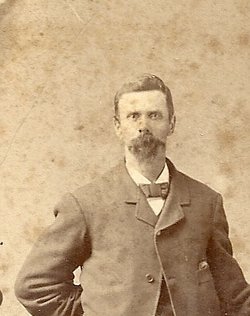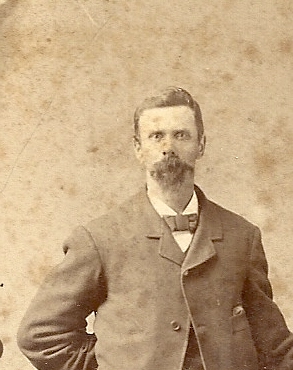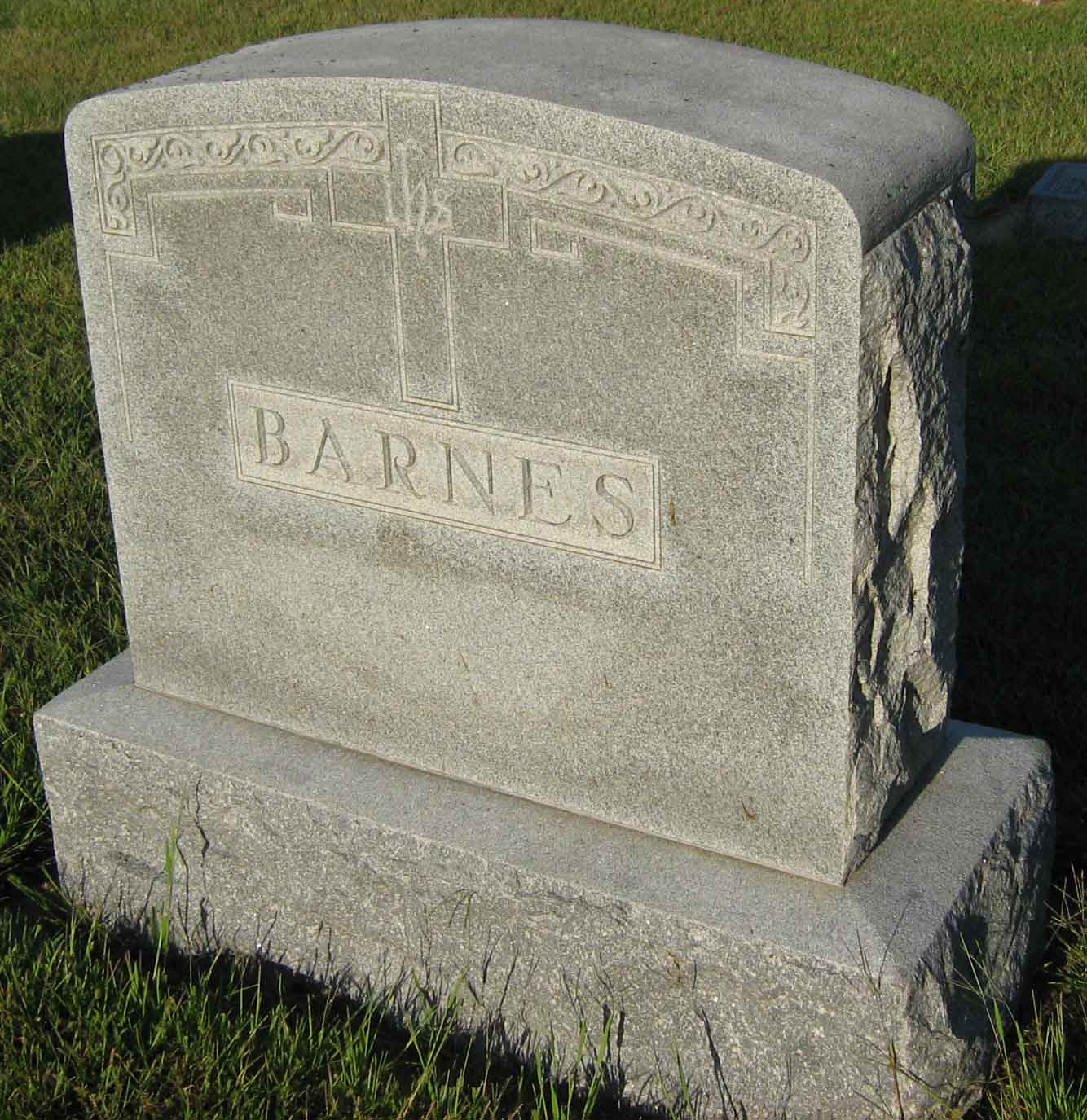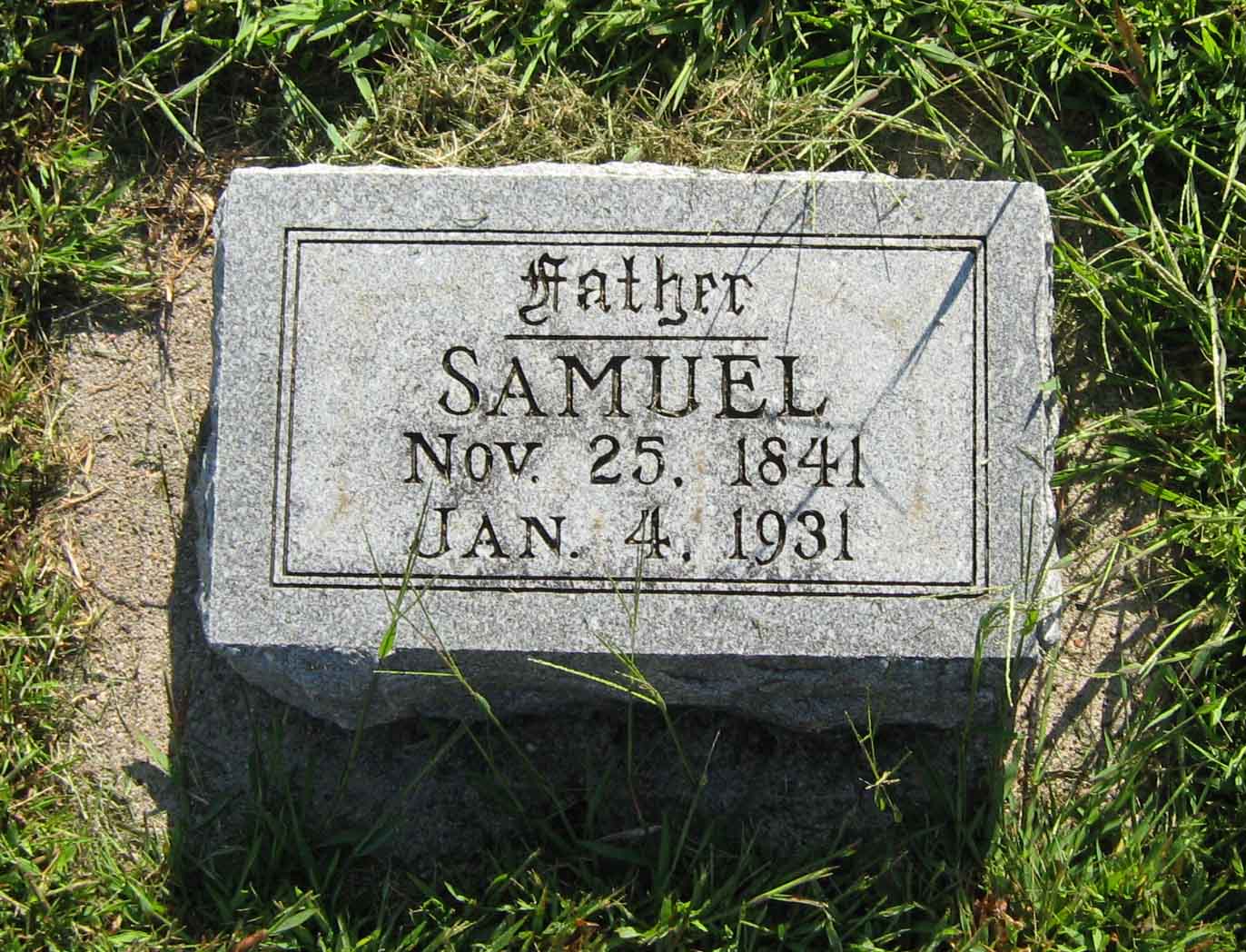298
COMPENDIUM OF HISTORY, REMINISCENCE AND BIOGRAPHY.
SAMUEL BARNES.
The thrifty blood of old English peasantry flows in the veins of Samuel Barnes, now living in comfortable retirement in the college addition of Wayne, where he owns thirty-four lots, enough for pasture, a garden, and room to turn around; when one has been accustomed to the wide space of the country, a small, restricted city lot gives him a sense of smothering; he must have room to stretch his limbs and draw a deep breath.
Mr. Barnes was born in the village of Manea, Cambridgeshire, England, November 25, 1841. His father, Samuel Barnes, senior, with his wife (who was Mary Ann Good) and two of their children, Samuel, junior, being one of them, emigrated to America in 1854, sailing on the ship "Albert Gelleton" from Liverpool, October 22, and arriving at New York the day before Christmas. He settled on a small tract of land near Cleveland, where he had a market garden for six or seven years. Four years later he came to Rockford Illinois, where his wife died, after which he made his home with his daughter in Rock Island county, Illinois, until his death, which occurred when he was nearly eighty-seven years old.
Samuel Barnes, junior, married in Cleveland, and in 1859, came to Illinois. He traveled by lake on the "May Queen" to Detroit, took a train to Chicago and traveled thence to Rock Island, Illinois. Shortly after, he crossed the river to Davenport and was employed there until January, 1861, when he returned to Cleveland. At this time they bought land in the "Black Swamp," near Millbury, a part of which they cultivated from 1861 to 1865. Returning to Davenport, he bought a team of horses and engaged in teaming, working fourteen years for the firm of Van Patten & Marks, wholesale grocers, and although not a large man, he could handle heavier freight than many men twice his size.
Mr. Barnes was first married in Cleveland, Ohio, April 7, 1859, to Miss Mary McCabe, a native of Ireland, who died in 1883. She was a daughter of Charles McCabe, and at her death was deeply mourned by a large circle of friends and sorrowing relatives.
Mr. Barnes lived in Davenport until 1885, when he came to Nebraska, reaching Wayne county on the 27th of September. He bought a quarter section of land four and one-half miles north and one mile west of Wayne, where he lived for twenty years. In 1905, he rented his farm, and the same year moved to town, where he purchased thirty-four lots in College addition, and built a neat cottage home. He followed teaming for a year or two, but receiving an extra good offer for his fine team, he sold and gave over hard work for the rest of his life. On several of his lots he has a fine garden which brings him a good revenue; he has his cow and a horse to keep, enough to give him some employment, at the same time adding to his pleasure in life and reducing the cost of living.
Mr. Barnes was again married September 16, 1885, at Cambridge, Illinois, to Mary Ann Ragen, who was born in Cleveland; she is a daughter of Hughie Ragen, who came from Ireland. One daughter was born to them, Edyth Rose; who is now a successful teacher in the Wayne county schools.
Mr. and Mrs. Barnes just escaped being out in the blizzard of January 12, 1888; he was hitching his team to drive over to his sister's, south of town, for a visit, when the storm enveloped them; had they started a quarter of an hour earlier, they might have been forever lost.
Deer were not all gone from the country when Mr. Barnes came; he saw two or three of them on the prairie after locating in Wayne county; and of wolves he has seen none here except the common coyote; but the large grey wolves he has seen in Illinois, when he occasionally worked across on that side of the river.
Much of Mr. Barnes' prosperity is due to his care for his tools; he has an axe, the helve of which he made in 1862; a hay rake and cultivator he purchased in 1865 are still in a perfect state of preservation; plows, harrows and other implements have been preserved with equal care. It is the care and saving in little things that make fortunes where otherwise failure and loss accrue.
Mr. Barnes is a democrat in politics, and a member of the Independent Order of Odd Fellows.
298
COMPENDIUM OF HISTORY, REMINISCENCE AND BIOGRAPHY.
SAMUEL BARNES.
The thrifty blood of old English peasantry flows in the veins of Samuel Barnes, now living in comfortable retirement in the college addition of Wayne, where he owns thirty-four lots, enough for pasture, a garden, and room to turn around; when one has been accustomed to the wide space of the country, a small, restricted city lot gives him a sense of smothering; he must have room to stretch his limbs and draw a deep breath.
Mr. Barnes was born in the village of Manea, Cambridgeshire, England, November 25, 1841. His father, Samuel Barnes, senior, with his wife (who was Mary Ann Good) and two of their children, Samuel, junior, being one of them, emigrated to America in 1854, sailing on the ship "Albert Gelleton" from Liverpool, October 22, and arriving at New York the day before Christmas. He settled on a small tract of land near Cleveland, where he had a market garden for six or seven years. Four years later he came to Rockford Illinois, where his wife died, after which he made his home with his daughter in Rock Island county, Illinois, until his death, which occurred when he was nearly eighty-seven years old.
Samuel Barnes, junior, married in Cleveland, and in 1859, came to Illinois. He traveled by lake on the "May Queen" to Detroit, took a train to Chicago and traveled thence to Rock Island, Illinois. Shortly after, he crossed the river to Davenport and was employed there until January, 1861, when he returned to Cleveland. At this time they bought land in the "Black Swamp," near Millbury, a part of which they cultivated from 1861 to 1865. Returning to Davenport, he bought a team of horses and engaged in teaming, working fourteen years for the firm of Van Patten & Marks, wholesale grocers, and although not a large man, he could handle heavier freight than many men twice his size.
Mr. Barnes was first married in Cleveland, Ohio, April 7, 1859, to Miss Mary McCabe, a native of Ireland, who died in 1883. She was a daughter of Charles McCabe, and at her death was deeply mourned by a large circle of friends and sorrowing relatives.
Mr. Barnes lived in Davenport until 1885, when he came to Nebraska, reaching Wayne county on the 27th of September. He bought a quarter section of land four and one-half miles north and one mile west of Wayne, where he lived for twenty years. In 1905, he rented his farm, and the same year moved to town, where he purchased thirty-four lots in College addition, and built a neat cottage home. He followed teaming for a year or two, but receiving an extra good offer for his fine team, he sold and gave over hard work for the rest of his life. On several of his lots he has a fine garden which brings him a good revenue; he has his cow and a horse to keep, enough to give him some employment, at the same time adding to his pleasure in life and reducing the cost of living.
Mr. Barnes was again married September 16, 1885, at Cambridge, Illinois, to Mary Ann Ragen, who was born in Cleveland; she is a daughter of Hughie Ragen, who came from Ireland. One daughter was born to them, Edyth Rose; who is now a successful teacher in the Wayne county schools.
Mr. and Mrs. Barnes just escaped being out in the blizzard of January 12, 1888; he was hitching his team to drive over to his sister's, south of town, for a visit, when the storm enveloped them; had they started a quarter of an hour earlier, they might have been forever lost.
Deer were not all gone from the country when Mr. Barnes came; he saw two or three of them on the prairie after locating in Wayne county; and of wolves he has seen none here except the common coyote; but the large grey wolves he has seen in Illinois, when he occasionally worked across on that side of the river.
Much of Mr. Barnes' prosperity is due to his care for his tools; he has an axe, the helve of which he made in 1862; a hay rake and cultivator he purchased in 1865 are still in a perfect state of preservation; plows, harrows and other implements have been preserved with equal care. It is the care and saving in little things that make fortunes where otherwise failure and loss accrue.
Mr. Barnes is a democrat in politics, and a member of the Independent Order of Odd Fellows.
Family Members
Sponsored by Ancestry
Advertisement
Records on Ancestry
Advertisement














